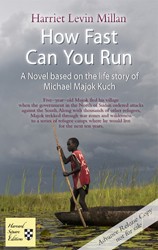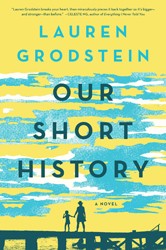One of the chief pleasures of Vesna Goldsworthy’s Gorsky, a delightfully unabashed retelling of F. Scott Fitzgerald’s The Great Gatsby, is charting all the transpositions. Long Island is now modern-day upper-crust London. Our narrator is Nikola Kimovic, a self-effacing Serbian immigrant with a Ph.d in English literature who works in a creaky bookshop in Chelsea. (And just in case you miss the reference — he goes by Nick.) There’s a Tom (Summerscale), a wealthy and charming philanderer, and his wife Natalia, Gorsky’s Daisy (which just so happens to be the name of Tom and Natalia’s daughter). Nick, less in love with than dumbstruck by Natalia, is causally involved with Gery Pekarova, an amoral former professional gymnast (c.f. Gatsby’s Jordan Baker). And, of course, there’s the titular Roman Gorsky, a mysterious Russian oligarch who — no surprise — is desperately in love with Natalia. The story opens when Gorsky hires Nick to “furnish… the best library in London” for his monstrous new home down the block; we very quickly spiral out from there.
No spoilers here; you likely already pretty much know the plot. Tom and Gorsky tussle over Natalia. Tom gets himself into a lot of trouble. Gorsky gets himself into a lot of trouble. Nick is carried along half-willingly for the ride. It doesn’t end particularly well for anyone. At root it’s a story, just like Gatsby’s, about love, money, love of money, love in spite of money, and money for love. It’s a London-sized mess of desire, possession, purchase, and fidelity.
But if love is in short supply, money is omnipresent. Standing over everything, symbolically and otherwise, is Gorsky’s perpetually in-progress palace. Nick, with his wry but uncynical gaze and his lack of allegiance to anything besides books, is the perfect tour guide for the opulent, bizarro world of the point-zero-one percent. The homes, artwork, parties, private islands — it’s all laid out and (gently) skewered. Even at this level of the stratosphere, all money is not equal: Tom’s old goyish money is dwarfed by Gorsky’s Russo-Jewish money, and always just below the surface is a simmering class discontent — the old very rich resent the new very, very, very rich. And Tom, it turns out, is an anti-Semite, if a genteel one.
Vesna Goldsworthy is an unflinching taxonomist of the wealthy and an unusually assured writer. There’s little lag as the novel lovingly, patiently reveals Gorsky and Natalia’s backstory, Tom’s extramarital adventures, and Nick’s own history. Nice, smart touches abound: Natalia is described as an ‘alien princess’; expensive coffee-table art books are compared to grown-up coloring books.
So Gorsky has got love, sex, murder, yet beneath all that its not-so-secret passion is literary — fittingly, for a book based on a book. There are dozens and dozens of references to real-world authors, books, and characters: it’s through literature that Nick sees and understands the world. It’s all he really cares about. “I wanted to imagine a woman falling in love with him simply by walking through his library,” Nick says in the most surprising and touching part of Gorsky, a kind of novel-length love letter to the written word. “That love too would be my creation.”
Related Content:
- Interview with Yelena Akhtiorskaya, author of Panic in a Suitcase
- Marina Blitshteyn: The Origin of Russian for Lovers
- The Innocents: A Novel by Francesca Segal
Menachem Kaiser holds an MFA in creative writing from the University of Michigan and was a Fulbright Fellow to Lithuania. His writing has appeared in The Wall Street Journal, The Atlantic, New York, and elsewhere. He lives in Brooklyn, NY.




